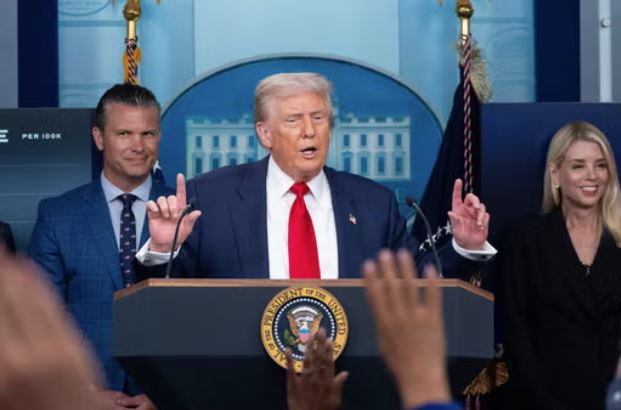DO YOU QUALIFY FOR STUDENT LOAN FORGIVENESS?
2025
…I made the call and walked away with my loans forgiven!
You Should Call

Trump Administration creating road blocks to student loan forgiveness programs

Trump Administration Proposes Restricting PSLF Based on Employer Activities
The Trump administration has rolled out a transformative—and controversial—proposal to tighten eligibility for the Public Service Loan Forgiveness (PSLF) program. The changes would disqualify borrowers whose employers engage in what the Department of Education deems activities with a “substantial illegal purpose.”(Inside Higher Ed, Business Insider)
What’s Changing?
Borrowers working for local or nonprofit organizations could lose PSLF benefits if their employer is found involved in activities like aiding undocumented immigrants, supporting terrorism, providing gender-affirming care, or violating federal discrimination laws.(Inside Higher Ed, Business Insider)
The administration argues this revision helps ensure taxpayer money isn’t granted to employers operating outside lawful or public-interest boundaries.(Inside Higher Ed, Business Insider)
Why It Matters
If finalized, this rule would overwrite one of the core principles of PSLF: focusing on an individual’s public service, not the employer’s ideology or affiliations.(Inside Higher Ed, Business Insider)
Advocates worry the definition of “illegal purpose” is vague—and politically motivated. It could destabilize essential public service roles and even jeopardize millions of existing borrowers.(Inside Higher Ed, Business Insider, AP News, The Economic Times, The Times of India)
Timeline & Next Steps
The proposed rule is open for public feedback now through September 17, 2025.(Inside Higher Ed, Business Insider)
If approved, it takes effect on July 1, 2026—but importantly, existing PSLF credits earned prior to that date remain intact.(Inside Higher Ed, Business Insider)
Voices of Concern
“This feels like government overreach… organizations and groups that are not working in line with the administration’s agenda are going to be targeted.”
— Sabrina Calazans, Student Debt Crisis Center(Inside Higher Ed)
Betsy Mayotte—the sole dissenting advisor on the rulemaking panel—warns the changes could chill public service and force employees to abandon jobs in hospitals or public defense.(Inside Higher Ed)
Emmanuel Guillory of the American Council on Education argues the proposal departs from Congress’s original intent to support individuals—not penalize them for their employers’ positions.(Inside Higher Ed)
Quick Summary
| Aspect | Details |
|---|---|
| What’s being proposed? | Disqualifying PSLF eligibility for borrowers whose employers engage in certain “illegal” activities. |
| Who is affected? | Public servants like teachers, nurses, social workers—especially in organizations involved in sensitive social issues. |
| Why now? | Trump’s March 2025 executive order directed this rule change; it’s now published for public comment. |
| Timeline | Comments open through Sept 17, 2025; if adopted, rule kicks in July 1, 2026. Past credit remains safe. |
| Main concerns | Vague and potentially politicized criteria; could undermine recruitment in public sector; possible legal challenges. |
What You Can Do
Submit a public comment before September 17—it’s your chance to influence the final rule.
Stay informed—track legal developments and advocacy efforts pushing back against the proposal.
For current PSLF borrowers: Keep an eye on updates from loan servicers and consider consulting experts for guidance.
Let me know if you’d like help drafting a public comment, understanding your current PSLF status, or exploring advocacy groups working on this issue.









Recent Comments